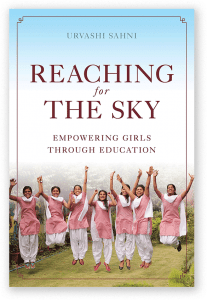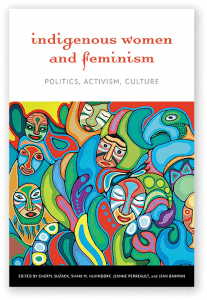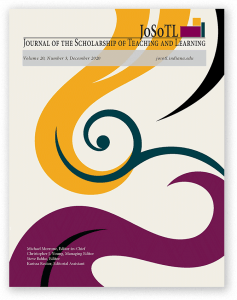International Women’s Day 2021: From Challenge Comes Change
Guest post, written by Shaylee Tardiff, Library & Information Technology student
Calling for a future where gender equality is a reality
Beginning in 1911, International Women’s Day has been recognized as a celebration of the many accomplishments that women have made globally, whether political, economic, or cultural. However, in 2021, this day still serves as a reminder of the need for gender equality across all fields. While there have been advancements since the beginning of the movement that created Women’s Day, there is still a great need for improvement, and the time for equality is long overdue. This day serves as a reminder of how far we’ve come, and a call for a future where gender equality is a reality.
2021 Theme: Choose to Challenge
The theme of this year’s Women’s Day is #ChooseToChallenge. Everyone can choose to challenge by actively seeking out ways to progress the movement to gender equality, or by challenging and discussing gender inequality where we see it. Challenging inequality in day-to-day conversations is something we can all do, regardless of gender identity.
Individuals of all gender identities are invited to send in their pictures to be featured in the International Women’s Day Gallery at this link: IWD 2021 campaign theme: #ChooseToChallenge (internationalwomensday.com)
RRC is committed to diversity and inclusion on all levels. Learn about the impact of change makers at the College in Diversity’s special post for International Women’s Day here: College change makers: Celebrating employees on International Women’s Day.
Explore gender equality with RRC Library
Due to the pandemic, this year it will be harder to celebrate International Women’s Day, but you can still participate by educating yourself on gender equality. A great start can be checking out some materials from the Red River College Library! By searching “Gender Equality” or “Women’s Day” you will find many resources that can help you to understand the importance of recognizing this day. Some samples from these searches are below.
Reach ing for the Sky: Empowering Girls Through Education by Urvashi Sahni (Book)
ing for the Sky: Empowering Girls Through Education by Urvashi Sahni (Book)
“Since 2003 a privately funded high school in India has provided desperately needed education for girls from impoverished families in Lucknow, the capital and largest city in Uttar Pradesh. Urvashi Sahni, the founder of Prerna Girls School, has written a compelling narrative of how this modest school in northeast India has changed the lives of more than 5,000 girls and their families. Most important, it is through the perspectives of the girls themselves, rather than through a remote academic viewpoint, that Prerna’s success unfolds. The book focuses on the importance of education in bringing about gender equality in a patriarchal society. It shows how girls learn to be equal and autonomous persons in school as part of their official curriculum and how they use this learning to transform their lives and those of their families.”
Why I March: Images from the Women’s March Around the World by Abrams Books (Book)
(Book)
On January 21, 2017, five million people in 82 countries and on all seven continents stood up with one voice. The Women’s March began with one cause, women’s rights,but quickly became a movement around the many issues that were hotly debated during the 2016 U.S. presidential race- immigration, health care, environmental protections, LGBTQ rights, racial justice, freedom of religion, and workers’ rights, among others.
 Indigenous Women and Feminism: Politics, Activism, Culture by Cheryl Suzack (Book)
Indigenous Women and Feminism: Politics, Activism, Culture by Cheryl Suzack (Book)
Can the specific concerns of Indigenous women be addressed within current mainstream feminist and post-colonial discussions? Indigenous Women and Feminism proposes that a dynamic new line of inquiry – Indigenous feminism – is necessary to truly engage with the crucial issues of cultural identity, nationalism, and decolonization particular to Indigenous contexts.
Gender and Student Participation by Bethany C. Leraas, Nicole R. Kippen and Susan J. Larson (Article)
(Article)
Active class participation has been associated with student engagement and can be an important aspect of a successful learning experience in college classrooms. Several factors influence student participation including classroom dynamics (such as classroom connectedness, instructor-student rapport) and individual characteristics (such as biological sex and psychological gender). With respect to individual characteristics, previous research has evaluated sex differences in participation and has yielded inconsistent findings. The present study investigated the relationship between psychological gender and student participation both in- and out-of-class.
 Gender in Science, Technology, Engineering, and Mathematics: Issues, Causes, Solutions by Tessa E S Charlesworth and Mahzarin R. Banaji (Article)
Gender in Science, Technology, Engineering, and Mathematics: Issues, Causes, Solutions by Tessa E S Charlesworth and Mahzarin R. Banaji (Article)
The landscape of gender in education and the workforce has shifted over the past decades: women have made gains in representation, equitable pay, and recognition through awards, grants, and publications. Despite overall change, differences persist in the fields of science, technology, engineering, and mathematics (STEM). This Viewpoints article on gender disparities in STEM offers an overarching perspective by addressing what the issues are, why the issues may emerge, and how the issues may be solved.
Suggest a topic
What topic are you interested in?
Not only do we love feedback, but we love to dig up resources you’re interested in! If you have a topic you would like to see featured here, please contact Linda Fox (Library Services).
Let’s get connected. Follow us on social media!

For everything from fun series to service and programming updates, follow us on social media. We’re active on Facebook, Instagram, and Twitter!

